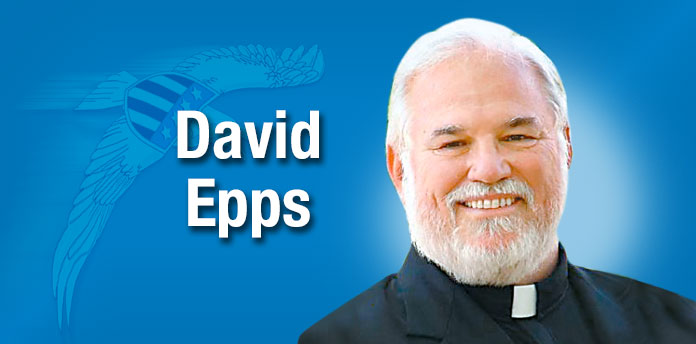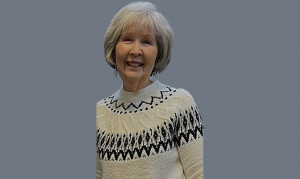In the very early 1980s, Mark died. Killed, actually, in a car wreck. Although I had been in ministry for several years already, and had experienced death and funerals, this one hit me especially hard.
Mark was a member of the large church where I served as one of six assistant ministers on staff. He was also a student in the karate classes that I led. He was slated to receive a promotion to a higher belt rank in a week. Mark was 15.
The funeral in the nearly 1,000-seat church was packed with church members, friends, and students and teachers from the local high school. I had a small part to play. As I sat on the platform and watched the grief of his family and friends, my own emotions boiled to the surface. When it came time for me to do my part, I almost didn’t get through it. I had to stop several times in an attempt to get composed and avoid a total breakdown during the service.
The next week, the pastor called me into his office to discuss my part in the funeral. One of the things he said at the end was, “David, if you are going to be in this profession, you have to get to the place where this type of thing doesn’t bother you.” Afterwards, I sat in my office and thought to myself, “If the time comes where this type of thing doesn’t bother me, it’s time to get out.”
In the years ahead, I would experience scores, perhaps hundreds, of deaths and funerals. I had to learn what first responders, doctors and nurses, and combat medics also had to learn — if you are so emotional that you can’t help people, you are useless to them. So, I learned to control and delay my grief. I had a job to do, and I couldn’t shed tears until later.
In the mid-1980s, with my mother, I visited my grandmother. While we were there in her house, she had a heart attack. We called 911 and, within minutes an ambulance was there and the EMTs and paramedics were working on her. It was to no avail. She died and I knew that my immediate family, who did not go to church, would need me in the days ahead. I choked back the tears and went into “minister mode.”
I walked my family through the next several days and through the funeral and burial. Even when my aunt’s pastor conducted the funeral, I still shed no tears. That would come later when I visited the grave site alone. It was there the emotions broke through and I sobbed like a grandson, the “minister-mode” now switched all the way off. In later years, when my father and then my mother died, and I conducted their funerals, the same switch was turned on, then off again when I was alone.
Many people, I think, assume that their pastors and priests are somewhat aloof and don’t feel deeply when one of their members dies. There may be some clergy like that, but I think that most who serve as long-term pastors (80% of clergy leave the pastoral ministry within five years of beginning it) have had to learn how to go into “first responder mode” so that the task at hand can be completed successfully. Their own personal grief occurs in private.
I served as a law enforcement chaplain for 25 years. I have seen police officers, firefighters, and EMTs, try heroically to save a life and sometimes fail. One police officer was called to a scene where a toddler was in distress, having swallowed hard candy that stuck in his throat. The officer did everything he could do as ambulances rushed to the scene. The child died in his arms.
He was the consummate professional until a couple of days later when I rode in his car. He pulled to the side of the road, told me about what had happened, and sobbed and wailed uncontrollably. Neither the child’s family nor his fellow officers ever saw his tears.
The public almost never sees the tears, but that doesn’t mean that the person is unfeeling or lacks compassion. But they have a job to do and must put aside their emotions — at least temporarily.
Pastors and priests, those who really care about their people, cannot remain untouched in the face of loss or tragedy. Some years ago, I was treated for depression. The doctor prescribed a medication that was supposed to curtail the emotional lows that come with depression. I was on the drug for many months, and it kept me out of despondency.
And then a church member died, and I had responsibility for the funeral. I did everything right, said the right things, acted the right ways … but I felt nothing. No emotions at all. I was alarmed. I decided that I would rather feel the pain of loss rather than not feel anything at all. I slowly weaned myself off the drug and have never used it since.
Pain, physical, mental, emotional, and spiritual, is a part of life. How we cope with it and how we deal with it, while still doing what we need to do, is a very individual thing. Some try not to deal with it at all and that course of action may result in callousness or PTSD. Others may deal with it by grieving immediately and this is probably the healthiest act. Others, out of necessity, may learn to delay it.
So, the next time you are at a funeral and the minister is not outwardly grieving or the next time you see a first responder act during an emergency, and you see them as controlled, professional, and detached, it doesn’t mean that they don’t care. You will see them, hopefully, at their best, doing what they were trained to do. But you will (almost) never see the tears.
[David Epps is the Rector of the Cathedral of Christ the King (www.ctk.life). Sunday services begin at 10:00 a.m. on Sundays but the church is also live streaming at www.ctk.life. Epps is the bishop of the Diocese of the Mid-South (www.midsouthdiocese.life) He may contacted at [email protected].]












Leave a Comment
You must be logged in to post a comment.